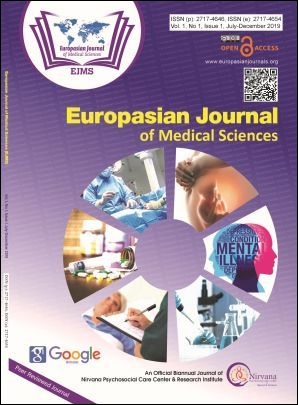Low Prevalence of Obesity and Pattern of Food Habits among Nepalese Medical Students
Keywords:
Eating habit, Medical students, Obesity, OverweightAbstract
Background: Overweight and obesity are major risk factors for non-communicable diseases (NCDs) like diabetes, cardiovascular diseases, musculoskeletal disorders, including cancer. The risk of NCDs increases, with increases of body mass index (BMI). Food choices and eating habits have been changed according to the pace of development and urbanization. Such a nutritional transition has been claimed for increasing rates of overweight and obesity which are recently observed in our adolescent and youths. Adolescents and youths are vulnerable groups of the development of overweight and obesity. Therefore, the objective of this study was to determine the prevalence of obesity and the associated food pattern among Nepalese medical students.
Methods: A cross-sectional study was conducted on 170 medical students of Nepal Medical College of 17 to 26 years in December 2018 using a self-administered questionnaire to assess the pattern of eating habit and prevalence of overweight and obesity by using BMI classification. Data were analyzed using SPSS statistical software, and the Chi-square test was used to establish the relationship of variables.
Results: The study showed that 7.1% of the participants were overweight and obese with average BMI of 21.46± 2.74. Three-fourth (72.4%) of the participants reported taking meals regularly. Two third of the participants (65.9%) reported that they consume vegetables and the vast majority (83.5%) had eaten fruits at least a day. Less than half of the students (44.1%) were found to be alcohol users whereas consumption of smoking was not common (1.2%). Demographic variables such as the income of the family and ethnicity were significantly associated with BMI (P<.05).
Conclusion: The prevalence of obesity was found to be low in comparison to the national scenario as the healthy food habits were predominant among the medical students.
Downloads
Downloads
Published
How to Cite
Issue
Section
License
The author(s) retain the ownership of the copyrights for their work published in EJMS without any restrictions. Upon submission, the author(s) grants EJMS a license to publish, including to display, store, copy, and reuse the published content.
License to Publish
By submitting a manuscript to EJMS, the author(s) grant the journal a non-exclusive license to:
- Publish and distribute the content in all formats, media, and platforms (both existing and future), while identifying EJMS as the original publisher.
- Reproduce, display, and store the content in both print and online formats, including institutional and digital repositories.
- Translate, adapt, and summarize the work, including reprints, extracts, and abstracts.
- Develop derivative works based on the original content.
- Include the work in electronic databases and provide links to third-party materials.
Creative Commons Licensing
In addition to EJMS’s publishing rights, authors grant third parties the right to use, share, and distribute their work under the Creative Commons Attribution 4.0 (CC BY 4.0) International License. This allows unrestricted use of the content, provided proper attribution is given to the original author(s) and the journal.

